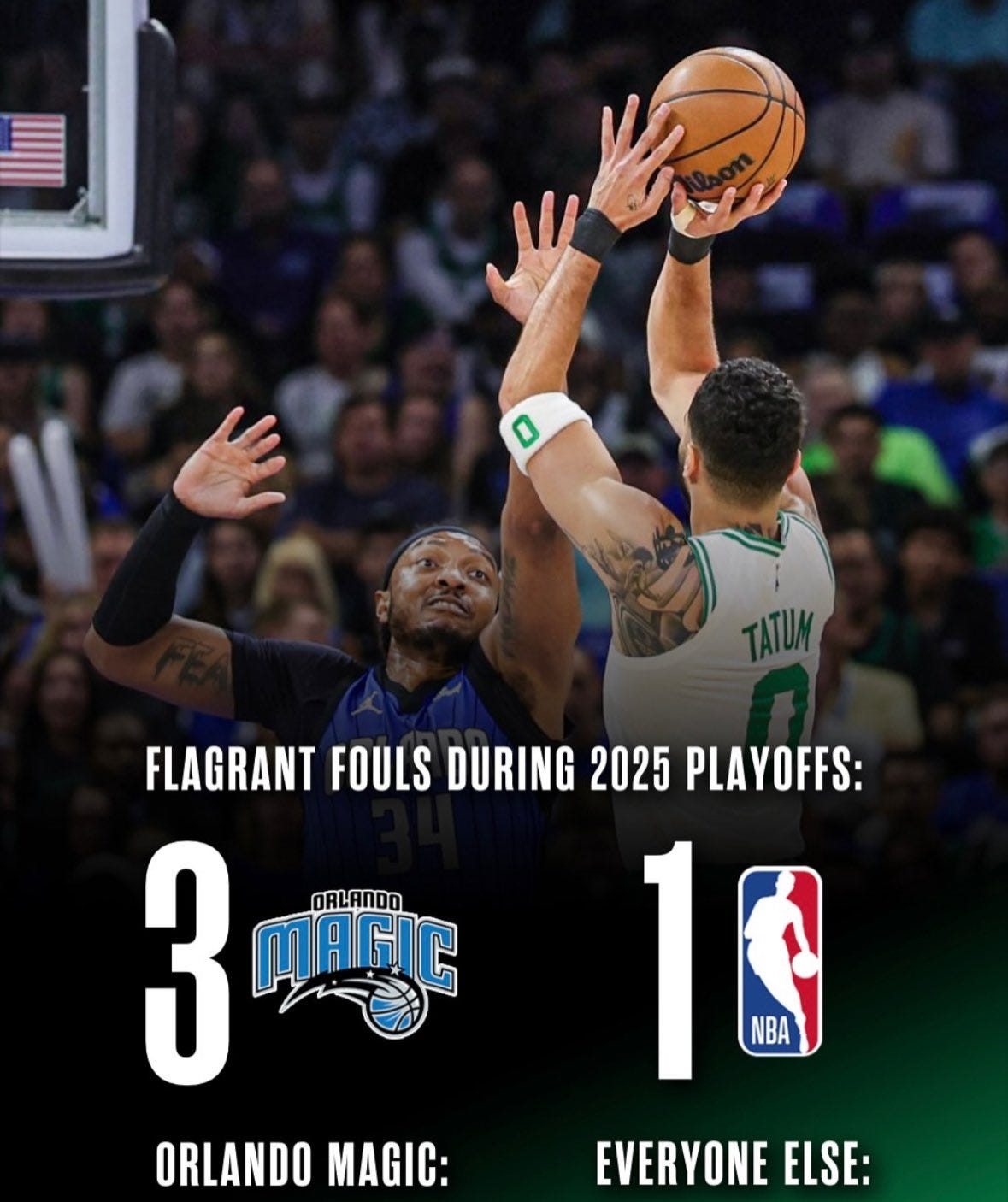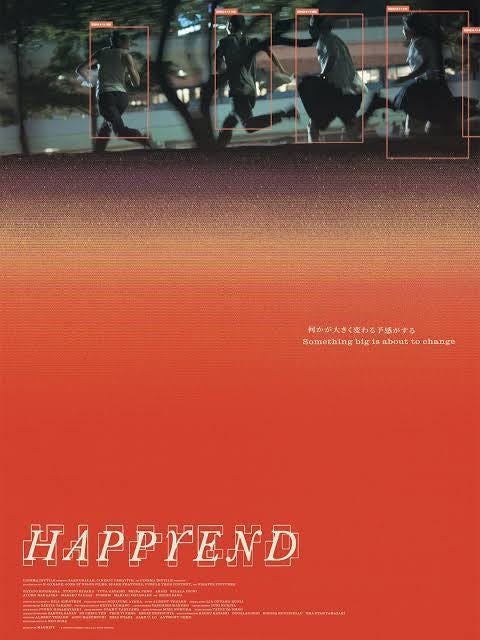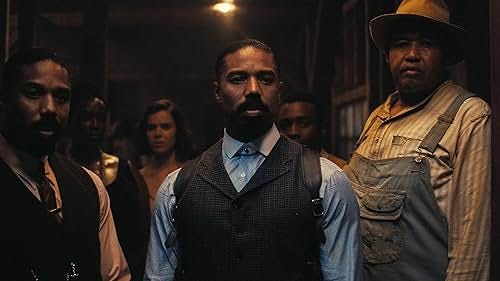Issue #377: Nathan Fielder is the Most Sincere Man in Comedy
Joe Mazzulla is a certified ball knower. This may be a self-evident point. He’s a championship winning NBA coach. However, its moments like this that really demonstrate how well he understands both basketball and competition at large:
If you want to skip the video, this is his answer to the question “do you feel like [the Orlando Magic] are crossing the line at all?” referring to the high number of flagrant fouls and physical aggressiveness on the part of the Magic:
No one’s been arrested. As long as we’re playing within the rules, you have to win in the trenches. Rebounding, turnovers, defending without fouling, all those things come into play.
The “no one’s been arrested” line has been the headline quotation. But the Magic have faced consequences. This image is accurate as of the end of Friday’s (4/25) game:
Despite the flagrant fouls assessed against the team, Mazzulla is right. He perfectly encapsulates my feelings about competition. This is as close to self-help advice as you’ll get from me: when your goal is to win, you should use every tool at your disposal, within the rules of the contest, to do so.
This is why I don’t feel any sour grapes about how Orlando is playing. There are a number of reasons why Orlando and Boston are matched up in the first round of the NBA playoffs, but it boils down to these: Orlando won enough games to be the 7th seed, and Boston won too few to be the 1st seed. The lower your seeding, the worse your matchup as determined by which team won more. In basketball, the better team wins. It’s tautological. A team’s betterness is determined by the game’s outcome. The playoffs, with seven game series, are about who can be the better team night in and night out.
Those stakes are massive. You don’t deserve to win if you won’t use all the tools at your disposal to do so, or if you can’t use them as well as an opponent. Cheating and rule violations, in the Platoic ideal of competition, are not tools at one’s disposal. But angle shooting? Racking up fouls? Sure. Do it until you’re suspended. Do it until you’re arrested. When you’re the worse team, a 41-41 record against a 61-21 record, what else would you expect?
Mazzulla demonstrates the mindset of wanting to win more than any other NBA coach, even as he gets reduced to “Psycho Joe” known for making statements that come across as peculiar or extreme.
And this is to say nothing of his shouting at Tatum to get up as Tatum goes down for what turned out to be a “severe bone bruise” in game one.
Time for the Celtics to live up to expectation.
Speaking of basketball, I have more of a human interest angle on another storyline involving two players and one corporation, Kawhi Leonard, Steph Curry, and Gatorade.
In the spirit of MAHA1, Leonard removes Gatorade from his interview table saying, “kids don’t need to be drinking that.”
You only have to watch the first ten seconds or so of this post-game presser to see Curry do the same thing, expressing his preference for Plezi — one of his sponsors. But the brand does claim to have reduced sugar compared to Gatorade.
There are people, like SNAKE SUPER HEALTH and Snaxshot who have been on this beat for a long time, chronicling the re-mainstreaming of concerns about processed, high-sugar, packaged foods. Nice to see ball players doing their part. Even if it is partially motivated by competing sponsorships.
If you want to do some homework for next week’s newsletter, I’m planning on writing about Happyend (2025). I saw the movie at IFFBoston yesterday (4/27). It was singularly sublime. There’s just too much to the film for me to turn around an essay in one day, so it’s bound for next week. I opted to put the poster in the letter instead of a trailer because I just want you to take my word. Find a way to watch the movie and watch it as soon as possible.
“Sensitivies” and “Sincerity” in The Rehearsal’s “Star Potential”
The Rehearsal (2022) is firing on all cylinders. There’s viral marketing — a Summit Ice relaunch, a screening at Nate’s Lizard Lounge, and some self-assured tweets.


He deserves the victory lap. This week’s episode, “Star Potential,” inspired a number of news items covering the status of the Nathan For You (2013) episode, “Horseback Riding / Man Zone.”


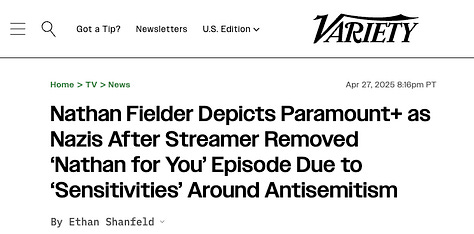
This is what he does. The redacted Nathan For You episode, unavailable on Paramount+’s streaming service but currently still available on (fka HBO) Max, was removed in October 2023. Because of The Rehearsal, it is making headlines in 2025.


Paramount+’s explanation for removing the Nathan For You episode, according to what’s shown in “Star Power,” is “sensitivities.” This idea is one of “Star Power”’s primary through-lines. Fielder implicitly makes an unflattering analogy between himself and a shamelessly sexist pilot, Jeff, “banned from pretty much every dating app known to man.” Jeff describes having to “walk on eggshells” with “female first officers” because “something you may think is a joke and try to be funny, she might get offended by.”
Fielder’s posture of censorship victim, though, is fundamentally different from Jeff’s. Though they both see themselves as purveyors of humor, it is Fielder’s serious aspiration to have success in a charitable venture, Summit Ice, that is suppressed by Paramount+. Jeff attempts to defend against criticism for whatever unknown speech got him banned from Tinder, Hinge, Bumble, Seeking Arrangement, and Instagram by claiming it’s in the spirit of humor. Fielder defends his speech by claiming it’s sincere.



Sincerity is another of “Star Power”’s watchwords. Toward its conclusion, Fielder says:
I’ve always felt that sincerity is overrated. It just ends up punishing those who can’t perform it as well as others. Some people are born great performers. They have the talent to effortlessly convince others they’re more than just a number.
The evidence of sincerity for the subjects of this episode are intangible. Co-pilot Mara D is more successful dismissing contestants from Fielder’s “singing competition as part of another TV show that has nothing to do with singing,” Wings of Voice.



But Fielder’s sincerity, always questioned by those who feel they can’t cut through his work’s meta-commentary, is evident. It’s performed precisely by the exposure of the conditions that constrain the production of television. What constrains a work, and the conditions of its production, are rarely part of the work itself. However, Fielder’s seemingly authentic email exchange with Paramount+ and his discussion of The Rehearsal using “public domain songs… so we don’t have to pay the licensing rights” is one of many examples in his work. This kind of self-exposure, what I read as sincerity, goes back at least as far as Nathan for You’s first season episode, “Clothing Store / Restaurant,” where Fielder discusses the difficulty of obtaining appearance releases from his subjects. The contractual complexities of having people appear on his shows is a common topic and source of humor, coming up again in “Taxi Service / Hot Dog Stand” and regularly in The Rehearsal’s first season.
What could be more sincere than revealing the things about making a television show that others try to obscure? Fielder’s performance of sincerity leaves nothing to be desired. The Rehearsal, as all of his work, is an invaluable lesson on how usually unseen elements of making TV shows come together to produce a work’s meaning. What Fielder faces in this episode, and this season, is that so many find it impossible to believe what he says. Despite his candor, he remains the clown.
The Successes and Failures of Sinners
I’ve been thinking a lot about how much an audience’s expectations can change their perception of a film. Specifically when it comes to genre. If someone goes in expecting a horror movie, and the movie is missing most or all of the horror movie tropes, how often will the unsatisfied expectation result in the person thinking the movie sucked? I give people a lot of credit for knowing what makes a movie good and bad, at least intuitively, so I tend to think the answer to that question is “not often.” Sinners (2025) is a testament to this thesis. Advertised as a horror-action film, Coogler’s latest effort is neither. It is a closer relative to a serious, character driven, sentimental drama than it is to either of its pulp associations. The movie does have a few jump scares, but it is not structured like a horror film. There is some shooting, but action is a very small contributor to the film’s overall runtime. No movie in the last year or so has been more poised to suffer the slings and arrows of critics and audiences because of the mismatch between its marketing and content. How, then, has Sinners managed to succeed with its outstanding Rotten Tomatoes score, astonishing Letterboxd average, and great word of mouth?
While I’ll still give credit to movie viewers as pretty good judges of what’s good and bad, I’ll be the outlier here. I don’t think Sinners quite as outstanding as the response indicates. It is a good movie. Better, perhaps, than Black Panther (2018) but worse than Creed (2015). Formally, it’s far from both, having the most in common with Coogler’s Fruitvale Station (2013). Light on action, heavy on drama, resting on Michael B. Jordan’s proficiency for facial acting. Some of the film’s most exciting moments involve talking to a vampire across an in-traversable threshold or through a closed door. From Dusk Till Dawn (1996) it is not, Sinners has prestige aspirations and fits the mold of what one might consider “middle brow.”
There are things the film does well. Coogler is a filmmaker who knows how to make his work beautiful and reuse the most enduring narrative tropes. Elijah, Smoke, and Elias, Stack, (both Michael B. Jordan) return to the Mississippi Delta like Odysseus returning to Ithaca. Their return is a reunion that has a cosmic quality to it, as the film’s most important and considered theme is the power of community. In Sinners, community enables economic success, emotional connection, pursuit of ones passions, theological richness. Truly, life is impossible without it.
The exploration is comprehensive. The film’s real protagonist, Sammie Moore (Miles Caton), moves through the film coming into a realization how he is positioned among various competing communities. Smoke and Stack’s juke joint is the ultimate nexus of that community, where the twins and Moore are interlinked with the white-passing Mary (Hailee Steinfeld), the root worker Annie (Wunmi Mosaku), Delta Slim (Delroy Lindo), and Grace Chow (Li Jun Li). The relations among this grouping are myriad — friendship, romance, respect, lawful marriage. But these are all sublimated to the level of family.
Confronting the vampires, led by Remmick (Jack O’Connell), there is a confrontation between two families. One of the film’s most poignant moments is when everyone from the juke disperses into the night, extricating themselves from the community and thus throwing themselves into peril. Everyone who leaves, against Annie’s advice who tells Smoke to keep everyone inside, dies at the hands of the vampires. But their collective death is represented on screen only by this separation from the community. The next time the audience sees them, they’re doing the undead Irish jig in one of the film’s weird musical numbers.
Aside from the examination of collectivity in the form of juke joint and vampire horde, Sinners is very wide in its focus. It fails to attach itself to any other theme, as they pop up and are unceremoniously dropped. Even Coogler’s most incessant fixation, fatherhood, is subordinate to examining the power of the collective. Fatherhood is more significant, though, than the other themes like racial passing, reputation, and religious practices such as rootwork. Most of these ideas are interesting, but none of them feel like they are part of a greater whole. I found the treatment of the plantation money most fascinating, evoking moments in Caribbean literature and in Euzhan Palcy’s Sugar Cane Alley (1983) film where laborers line up to use their credit in the plantation store. Many working on these Caribbean sugar cane fields were also paid in the same way as sharecroppers, with financial credit that could only be used at a store run by the plantation. Sinners is maximalist but with a light touch. The ideas with which it is filled to the brim fail to have the same depth as the ideas in a movie that work over the same idea repeatedly, transforming it.
The sum of my critique is that Sinners ends up feeling like a loose assemblage of ideas thrown together because of their appropriateness to the period as opposed to a coherent treatment of interconnected themes. If there is a case to be made for what Coogler assembles to be thought together, other than the relation to Black life in the 1930s, the movie doesn’t make it. The film is also profoundly weak in its action choreography. Mercifully, the film doesn’t have much “action,” but it should have had even less. The vampire fight set piece is messy, disorganized, poorly filmed, and mangled in the edit. Smoke’s showdown with the KKK that closes the film is much better, and staging the conflict in the same way as a war film works thematically and looks good. I can’t help comparing it to the opening of Bad Boys II (2003) simply because of who gets shot up, but such a comparison is cause for praise, not criticism. It says something that the film’s most riveting moments are conversations between human and undead across an open doorway. If there had been no protracted fight with the vampires and only the final shootout, I would have been much happier. Coogler’s deficiency in action filmmaking may be a legacy of his work in the Marvel Cinematic Universe. Black Panther: Wakanda Forever (2022) had similarly ugly and badly staged action. Sinners also has all the faults of MCU movies. They don’t let their combat breathe and they don’t cut with intention.
What makes Sinners a good night at the movies is the drama. Michael B. Jordan is outstanding, channeling the unsettled awkwardness of a man who flinches when confronted with a feminine counterpart — Mary or Annie depending on if we are talking about Stack or Smoke. There might have been something to explore, there, about the self-assured masculine projection that seems to crumble in the face of the woman who is most important. Sammie Moore is also exceptional, particularly in his musical performances. Sinners does not have a hard time convincing its audience that Moore is a blues artist destined for greatness, the young Miles Caton likely has a robust musical career in front of him. Delroy Lindo, unfortunately, was underutilized in Coogler’s script.
Sinners is by no means a bad movie. It will make my list of favorites from 2025. But it will probably live somewhere at the bottom. It’s the worst of the good movies I have seen this year. There is a lot to like here and a few remarkable ideas brought to life, briefly, for the first time in big budget filmmaking. Its success, however, is overblown. Until Coogler can extricate himself from the MCU filmmaking machinery, he’s unlikely to deliver a blockbuster film that isn’t plagued with the same kinds of shortcomings.
Weekly Reading List
I saw a program last week at the Harvard Film Archive called Prewar and Wartime Animation, Part Two last week. I tried my best to locate what shorts I could and assemble them into a youtube playlist here: https://www.youtube.com/playlist?list=PLHpmhe-PKbIHW9_3cjtkUxHbPKanotlQQ
It was such an exciting showcase, so I highly recommend taking a look at these. Benkei vs. Ushiwaka (1939) in particular appears to have a pretty significant influence on modern Japanese animation. One of its early scenes involving crows looks quite a bit like the mass produced Evangelions from Hideaki Anno’s The End of Evangelion (1997).
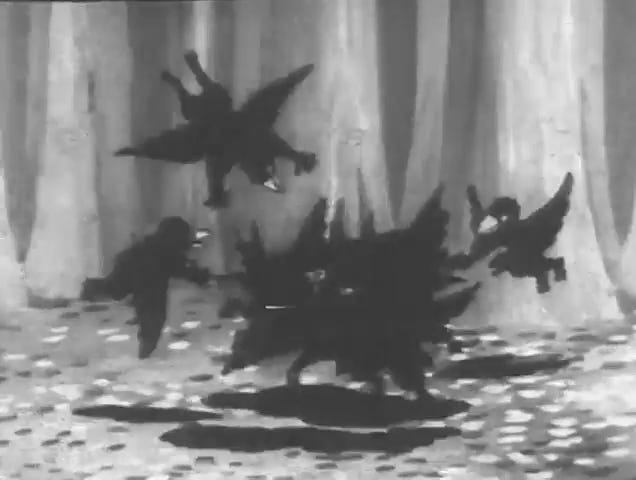

Maybe there’s a case for some connection with The Wizard of Oz’s (1939) flying monkeys, too.
https://www.npr.org/2025/04/22/1246322283/levitsky-harvard-democracy — Following the topics from last week, Steven Levitsky discusses his recent essay for Foreign Affairs with a sobering assessment of what kind of governance would mean the United States is an authoritarian country. You can find a transcript of the discussion here.
Until next time.
Please donate to The Internet Archive: https://archive.org/donate



